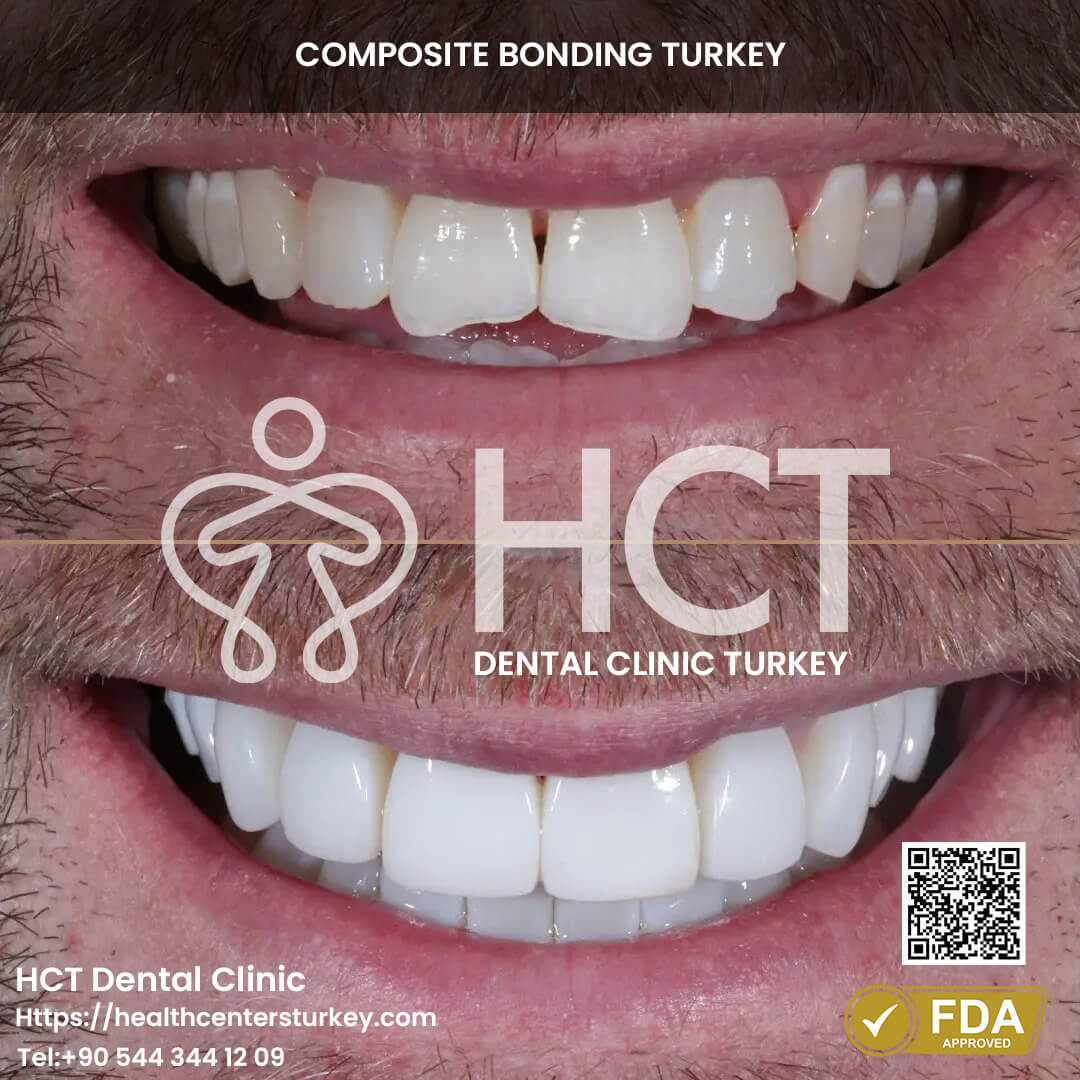Search for Your Ideal Dental Clinic in Turkey for Aesthetic Procedures
Search for Your Ideal Dental Clinic in Turkey for Aesthetic Procedures
Blog Article
All-inclusive Oral Health Solutions for Beautiful Smiles

Dental implants have turn out to be a focus in trendy dentistry, providing a reliable resolution for those going through tooth loss. Among the multiple benefits they offer, one significant facet value considering is their influence on adjacent teeth. Understanding how dental implants have an result on surrounding teeth aids in making knowledgeable selections about oral health.
When a tooth is misplaced, neighboring teeth can easily shift towards the space left behind. This motion can result in misalignment, which compromises the overall chew and function of the mouth. Dental implants mimic natural tooth roots, thereby sustaining the place of adjacent teeth.
Dental Travel: Enjoy Affordable Care in Turkey
The stability supplied by an implant is crucial, as it helps in preserving not simply the physical alignment but in addition the structural integrity of the jawbone. When a tooth is missing, the underlying bone can begin to deteriorate due to lack of stimulation. An implant exerts strain on the bone throughout chewing, similar to a natural tooth, which promotes bone health.
In some instances, a bridge or partial denture may be thought of as an alternative choice to implants. While these options may restore some functionality, they'll place additional stress on neighboring teeth. Bridges usually require submitting down the encircling teeth to accommodate the anchors, thereby affecting their health over time. Dental implants, however, do not alter present teeth, making them a more conservative choice.
Tips for Finding Quality Dental Care across Turkey
Hygiene turns into another crucial issue when contemplating adjacent teeth in the context of implants. With dental implants, the person can maintain an everyday hygiene routine just like natural teeth. Flossing and brushing around the implant are easy, making certain that the gum tissue stays healthy and minimizing the risk of gum disease that would adversely affect adjacent teeth.
Moreover, the supplies used in dental implants are biocompatible. This means they are designed to integrate properly with the body, decreasing the possibilities of an opposed response. This attribute not solely makes the implant safe but also protects nearby teeth from potential issues that could arise as a end result of contamination or infection.
In terms of aesthetics, dental implants supply a natural feel and appear, carefully resembling authentic teeth. Adjacent teeth profit from this aesthetic enchantment as well. When an implant is placed, the surrounding gum tissue can be formed to imitate natural contours, thereby enhancing the general appearance of the smile. This aesthetic issue can encourage people to put cash into their oral care routines, benefiting both the implants and adjacent teeth in the long run.
Affordable Cosmetic Dental Bridges designed for Patients
Another concern is the potential for gum disease, which might have an result on the health of adjacent teeth. Gum disease can happen when plaque builds up around teeth and implants. Regular dental visits and applicable oral hygiene can mitigate this concern. The presence of implants also can serve as a motivator for better dental hygiene practices, as people turn into extra aware of sustaining their total mouth health.
Studies have proven that dental implants can contribute to a big improvement in quality of life. Patients often experience elevated confidence and are much less hesitant to smile or interact in social interactions. A healthy and well-maintained smile indirectly promotes higher take care of adjacent teeth, as individuals are most likely to become more conscious of their total oral hygiene.
One often-overlooked facet is the psychological impact of dental implants on patients. Knowing that implants provide long-term solutions can ease the anxiety related to tooth loss. With fewer worries about future tooth shifts, sufferers usually have a tendency to invest time and effort into caring for his or her teeth, which incorporates adjacent teeth.
In conclusion, dental implants serve as more than only a solution for missing teeth; they play a pivotal function in maintaining the health and integrity of adjacent teeth. From stopping misalignment to selling gum health and enhancing aesthetics, the benefits are manifold. By choosing implants, individuals can't only restore performance but in addition foster a healthier oral environment for surrounding useful link teeth. The psychological and aesthetic advantages further contribute to an overall enhanced quality of life.
Comprehensive Dental Packages Featuring Cosmetic Options
In the long run, understanding how dental implants affect adjacent teeth can guide people in making empowered choices concerning their dental health. The integration of these implants into the mouth acts as a stabilizing drive, safeguarding both the bodily alignment and functionality of neighboring teeth, while selling a long-lasting, wholesome smile.
- Dental implants typically don't exert pressure on adjacent teeth, maintaining their integrity and lowering the danger of shifting or misalignment.
- The placement of an implant usually encourages better oral hygiene habits, positively influencing the health of adjacent teeth via improved cleansing practices.
Transform Your Teeth through Creative Dental Practices in Turkey
- In some instances, dental implants can stimulate the encircling bone, which helps preserve the natural teeth's place and overall dental structure.

- The gap left by missing teeth can result in bone loss; dental implants can prevent this, thereby defending adjacent teeth from potential problems.
- Explore Comprehensive Dental Services in Turkey
Get the Best Dental Treatments and Services in Affordable Rates in Turkey
- By restoring the perform of a missing tooth, implants help distribute chunk forces evenly, lowering wear and stress on neighboring teeth.

- Properly placed dental implants can act as a support structure, preventing unwanted movement of adjacent teeth resulting from tooth loss.
- The presence of an implant may enhance the aesthetic appearance of surrounding teeth by filling in gaps and supporting facial structure.
Explore Top Dental Treatments in Turkey for Implants, Veneers, and More
- Dental implants get rid of the necessity for adjacent teeth alteration, not like bridges, which require reshaping the close by teeth for assist.
- Implants additionally cut back the chance of gum disease compared to other tooth replacement choices, not directly benefiting adjacent teeth by selling general oral health.
Boost Your Confidence with Quality Dental Care.
- Long-term success of dental implants is linked to the health of surrounding teeth, emphasizing the importance of regular dental check-ups and maintenance.
How do dental implants have an effect on adjacent teeth?
Advanced Dental Technologies for All Needs
What are dental implants and how do they work with adjacent teeth?undefinedDental implants are synthetic tooth roots placed into the jawbone to help replacement teeth. They don’t affect adjacent teeth directly, as they are impartial constructions. Instead, they may help preserve the integrity of surrounding teeth by preventing bone loss.
Can dental implants trigger harm to adjacent teeth?undefinedIf positioned appropriately, dental implants shouldn't harm adjacent teeth. However, improper placement can result in points like misalignment or strain, emphasizing the importance of choosing an skilled dental skilled.
Will dental implants promote bone progress around adjacent teeth?undefinedYes, dental implants assist stimulate the jawbone, which might encourage bone progress. This can benefit adjacent teeth by sustaining bone density and stability within the area.
Enhance Your Well-Being with Quality Dental Care
Should I worry about gum disease affecting adjacent teeth after getting an implant?undefinedGood oral hygiene is essential after getting an implant. Gum disease can still have an effect on adjacent teeth, his response but a correctly maintained implant doesn't increase that risk. Regular dental visits can help monitor and preserve gum health.
What happens to adjacent teeth if I lose a dental implant?undefinedIf a dental implant fails or is lost, adjacent teeth could shift due to modifications in bite alignment and assist structure. This might lead to misalignment or extra tooth loss if not addressed.
Are there any special care requirements for adjacent teeth after getting implants?undefinedMaintaining good oral hygiene practices, together with common brushing, flossing, and dental check-ups, is essential for each dental implants and adjacent teeth to stop decay and gum disease.
Extensive Oral Health Packages for Every Budget
Do dental implants assist support adjacent teeth when chewing?undefinedAbsolutely. Implants can enhance general bite perform, which may alleviate stress on adjacent teeth throughout chewing. This can lead to higher distribution of forces, selling oral health.
How can I prevent complications with adjacent teeth and implants?undefinedConsistent dental care, including skilled cleanings and examinations, common brushing and flossing, and following your dentist’s aftercare directions, are key to preventing complications.
Can adjacent teeth transfer if I have a dental implant?undefinedAdjacent teeth could move if they are not well-supported, particularly after tooth loss. A dental implant helps keep the structure, decreasing the risk of shifting teeth. Report this page